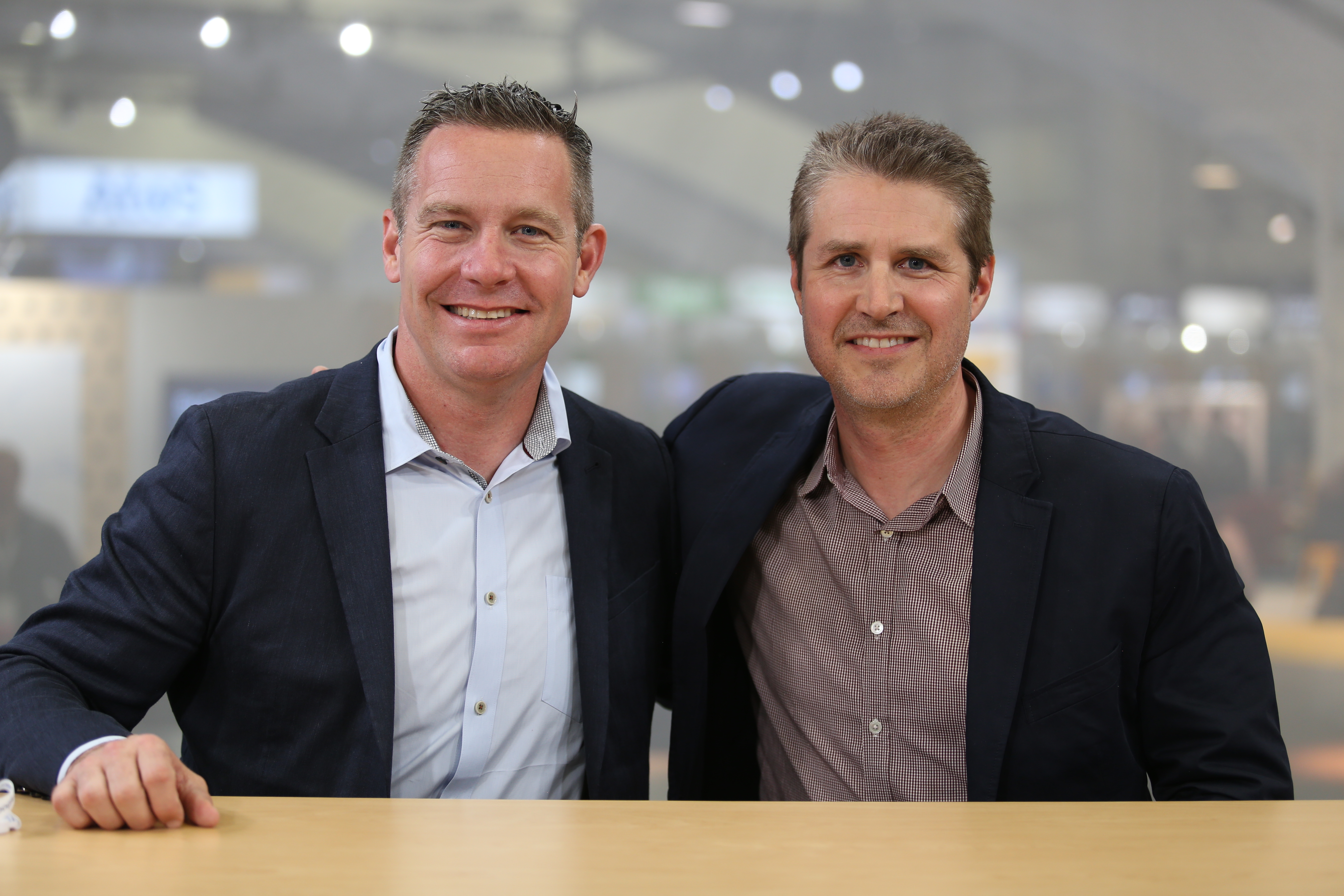 CLOUD
CLOUD
 CLOUD
CLOUD
 CLOUD
CLOUD
SADA Systems Inc. began bringing organizations to the cloud before it was a hot topic. The company provides business and technology consulting services aimed at transforming organizations through cloud-based solutions. While the company was a pilot partner with both Microsoft and Google for cloud options, it has now gone all-in with Google Cloud as it plans for the future of cloud innovation.
“We looked at the tea leaves, we looked at where we wanted to be, and aligned with a company that shared our mission and values — and it was a clear choice. We chose Google,” said Dana Berg (pictured, left), chief operating officer at SADA Systems.
Berg and Chris Lehman (pictured, right), head of engineering, Google Cloud, at SADA Systems, spoke with John Furrier (@furrier) and Stu Miniman (@stu), co-hosts of theCUBE, SiliconANGLE Media’s mobile livestreaming studio, during the Google Cloud Next event in San Francisco. They discussed their partnership with Google Cloud and what they foresee as cloud innovations unfold (see the full interview with transcript here). (* Disclosure below.)
[Editor’s note: The following has been condensed for clarity.]
Furrier: You guys recently sold your Microsoft business, going all-in on Google. Talk about that relationship.
Berg: This is a brand new day for SADA. The energy around this place, where we are in the market, and where we are with the expanded attendance here [at Google Cloud Next] has actually reaffirmed our business strategy to go all-in with Google.
SADA has been around for almost 20 years. Historically, we have always been leaders in bringing people to the cloud even before there was really much of a cloud. We made a very specific and deliberate act to sell off our Microsoft business so that we could take the horsepower of all of our engineering staff and apply them to Google.
Furrier: What is it about this wave right now that made that decision? What do you guys see? You’re seeing something early here. Expand on that.
Berg: It seems like there’s a revolution going on here. What we see when we look around and we hear conversations and even with our customers — the way that we’re all winning together is because we’re winning the hearts and minds of the people inside of our customer base that are actually the ones responsible for inventing and the ones responsible for building. So when we’re in boardrooms and we’re selling along with Google, we’re talking with developers, we’re talking with designers, we’re talking about people that are actually driving the vision for these business applications. We’re not always talking to the CIO down, like some of our other competitors that seem to have only been able to sell that way. We’re talking about the people responsible for not only constructing it but maintaining it. So that revolution is there.
I think there’s very few cloud providers that are bold enough to actually lead with the fact that we want our customers to have full choice, whether you’re using [Google Cloud Platform] or not. We want to build, architect and manufacture a product offering that allows you to keep your stuff in your data centers, move your stuff to AWS. That power of choice is really not like what we’ve ever heard anywhere else.
Furrier: And then on top of that, you’ve got an application renaissance, right? A whole new way of coding, infrastructure that’s programmable and going away. I mean, if you think about what that does to the existing infrastructures, they can now mix and match and re-architect everything from scratch and accelerate the app movement.
Lehman: That’s absolutely true, and a lot of that has to do with the fact that there are managed services in the cloud which makes it dramatically easier to build applications, of course; so there’s no question about that. Some of the offerings on GCP are particularly attractive for our clients, particularly the managed Kubernetes service. That’s where we’re seeing perhaps most of the interest that we’re seeing — like that’s a very common theme. Also the [machine learning] stack is an area that our customers are very interested in.
Stu: Share a bit on that. When I think back two years ago … data was really at the core of what a lot of what Google was talking about … AI, ML. What are you doing? What are your customers doing? Does Google have leadership in the space?
Lehman: Google certainly has leadership in the space. Our customers, I think, relatively universally, think that their ML stack is the strongest among the competitors. But I think in practice what we’re finding is there’s a lot more urgency as far as just literal data migrations off of their data centers into the cloud — and I foresee a lot more AI and ML work as more move in.
Furrier: At the beginning, I called Google the dark horse. I think with the tech that they have and the renewed focus on the enterprise … this is now a great opportunity.
Berg: We are investing more than we ever have into the common belief that Google is the one to beat in terms of momentum, drive, and ultimately winning the hearts and the minds of who we’ve talked about.
Watch the complete video interview below, and be sure to check out more of SiliconANGLE’s and theCUBE’s coverage of the Google Cloud Next event. (* Disclosure: SADA Systems Inc. sponsored this segment of theCUBE. Neither SADA Systems nor other sponsors have editorial control over content on theCUBE or SiliconANGLE.)
THANK YOU